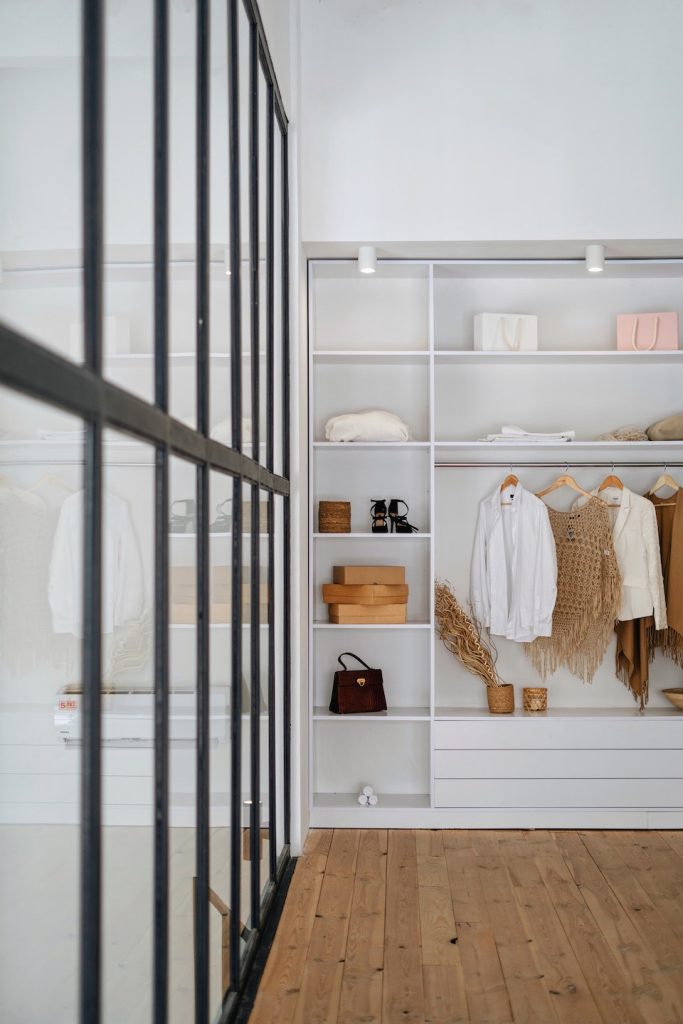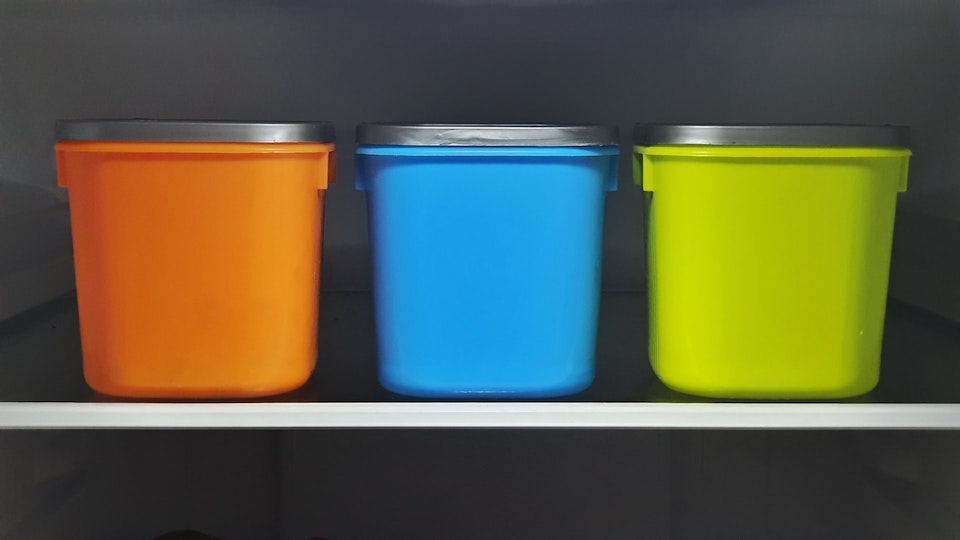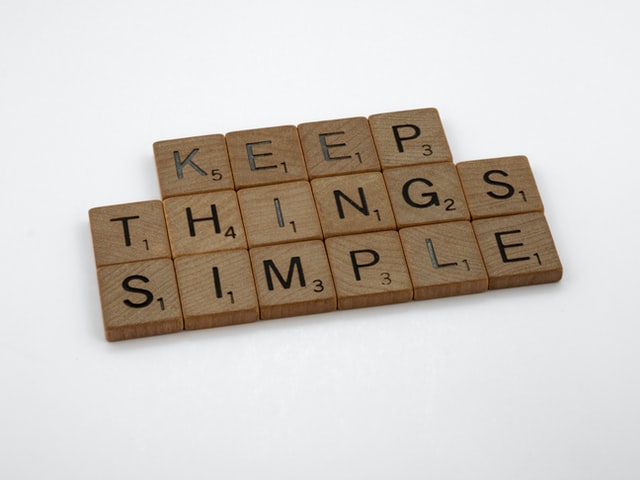A cluttered home can be stressful, especially if you’re trying to organize it on your own. But cleaning out clutter doesn’t have to be overwhelming, since there are so many simple decluttering tips you can follow to make the process quick and painless.
Just because something is behind a closed door – or in a pile of junk – doesn’t mean you have to leave it there. The article below will provide you with fast, easy, and effective ways to declutter your home.
What is “clutter?”
Clutter can be anything from old newspapers or magazines that you don’t plan on reading to clothing that doesn’t fit anymore and bills that need to be paid. Some people also describe clutter as “items in your home that aren’t necessary.”
To some, clutter can mean having several unopened letters in a drawer for the past year, while others view clutter as multiple piles of laundry that need to be washed.
What’s important is figuring out which items are truly important to keep or whether there are items in your home that aren’t necessary.
How clutter affects your life
In addition to being a physical burden, clutter can have an emotional effect on you.
Clutter has been associated with being a bigger stressor in people’s lives, as it increases the time spent looking for things and decreased feelings of control over one’s environment.
Here are some of our favorites tips on how to declutter your home:
1) Start small
Start by decluttering a small area of your home at a time. Make sure that you start with an area that is easy and quick to clean, such as a dresser drawer, laundry room, or closet shelf and then move onto other rooms.
The goal is not to get rid of everything in one swoop; rather, you want to build up momentum and keep it going until you’ve de-cluttered your entire home!
If there are some areas that just aren’t fitting into place (or if it takes longer than expected), then put those aside for later and focus on clearing out other areas.
You can always come back to those areas once you feel like you have some momentum.
2) Use donation centers
Donation centers are a great way to declutter your home and clean out things you don’t need.
If you’re moving, one of these centers is a great place to donate items from your home so they can be repurposed or given away.
And if you’re simply trying to clean up, donation centers are a great resource for getting rid of a few things that no longer have a place in your life.
Here are some questions to ask yourself when donating:
- Do I really want it?
- Do I love it?
- Do I use it?
- Is there space for it?
Tips:
- Only donate what you know you will absolutely not use again
- Only donate what brings you joy
- Only donate what has value beyond its purpose
- Only donate things that bring people joy!
You must schedule a time to clear out your closets and drawers, as well as your bedroom and living rooms.
While you might like that thrift store teapot your mother gave you, chances are it’s not getting much use. If it still looks good and is in good condition, consider donating it at a local thrift store or Goodwill.
For things you no longer need but can’t give away, try selling them on Craigslist or eBay. You may even make some money from them, and create space at the same time!
Consider selling furniture as well if there isn’t enough room for it where you live now; it could be worth something even if secondhand.
You never know what will become valuable down the road—but one thing is certain: Keeping too many unneeded items will only clutter your life more than necessary.
3) Discard books

Sometimes you just need a good purge—and books are great candidates for decluttering.
If you’re not reading a book now, chances are that it will never be read again, especially if it’s been on your shelf for years. Get rid of those unread pages by donating them to a library or favorite reading spot.
This is also an opportunity to toss any dated books that can no longer be relevant in today’s market. Once you get started with purging old reads, remember to comb through all areas of your home; there may also be some magazines and newspaper subscriptions that should go right along with these novels!
4) Purge paper clutter
Papers and bills needlessly clutter our homes. Purge these papers by digitizing them. Scan or photograph all your financial records, medical records, receipts, bank statements, etc., then go through each document and trash anything you don’t need for future reference.
If it’s not important enough to keep, throw it away — or shred it (if it contains sensitive information).
Get rid of your junk mail too!
Once you’ve cleared out your physical space, make sure you set up digital inboxes that will organize emails into different categories (notifications, purchases, reminders) so they don’t take over your email app.
Now that you have less paper in your home, clean what remains with a homemade vinegar solution.
5) Dispose of unused medication
The National Association of Boards of Pharmacy (NABP) reports that most family medicine cabinets are filled with expired or unused medications.
Consider getting rid of these extra medications by disposing of them in a safe manner that will keep them out of landfills and waterways.
Contact your local pharmacy for specific instructions on how to safely dispose of outdated, unused medications. If you have lost, broken or otherwise, unusable medication, consider asking your pharmacist if he or she will accept it so it can be disposed of correctly.
6) Make your kitchen an organized space

To make your kitchen clutter free, start by getting rid of any non-essential kitchen utensils off your kitchen counter. The more you have, the more cluttered it will be, so check your kitchen cabinets.
When household items, mail, and documents don’t have a designated home, the buildup develops. Take a few minutes to move anything that doesn’t belong in the kitchen, and be sure to provide a permanent home for stuff like mail or ongoing work projects that end up piling up on your counter.
If you don’t use something on a regular basis, take it out of your cabinets and either throw it away or give it away to charity. Make sure that what remains is only what you need.
Remember that not everything needs its own specific tool; can opener handles can double as jar openers, for example. If you have lots of devices from old appliance packages, look into whether those extras are worth keeping or throwing away.
There’s no sense in having five spatulas when one spatula will do just fine!
Storage spaces are at a premium in modern homes, so look for creative ways to store items that you’d like to keep on hand, but don’t require your eyes. For example, try using deep dish trays or stack plates atop one another so they can be stored vertically rather than horizontally.
Use tools to organize your kitchen
There are many tools that can be used to help organize your kitchen, such as the following:
- Sliding Utensil Tray
- Label Maker
These items allow you to easily access all of your frequently used utensils and spices. They also allow for the easier organization because you can label them so you know what’s inside.
Organize your kitchen drawers
Kitchen drawers can become cluttered very easily, so they need to be closely monitored and organized regularly – especially if you use your kitchen a lot.
As soon as one of your drawers becomes cluttered or disorganized, take the time to reorganize it. This will save you from being frustrated when trying to find an item later on.
Declutter your refrigerator
Your refrigerator is where you should be storing your food. If you have a lot of old or untouched items in there, then it’s time to declutter and organize your refrigerator properly so that what’s going inside is actually good for your health.
7) Let go of keepsakes
Everyone has mementos they hold onto, but decluttering experts say you should toss anything that doesn’t spark joy.
If it’s not really your style or something you look at frequently, it might be time to let go of mementos you don’t truly value. It can be hard to do that — especially if they have sentimental value—but trust us, you’ll feel lighter without them.
8) Sell electronic items
If you have some electronics items (like a phone, an old laptop, or even an old video game console) that you’ve been storing for ages and you don’t use them anymore, it might be time to sell those things.
Take some pictures of those devices and post them online with your contact details; someone might be interested in buying them from you. You can earn money that way and recycle useful things at the same time.
Garage sale, yard sale, silent auction are all great ideas!
9) Evaluate your closet

Start by evaluating your closet. Remove any items that you haven’t worn in 6 months or more. Set them aside and label them as items to be donated.
Put all other clothes away and label them as clean clothes, ready for use. Next, go through each drawer, cabinet, and shelf of your home and remove everything you don’t absolutely need (and ideally love) from those spaces as well; put these things into a box labeled clothes/furniture/miscellaneous to be donated.
You can donate clothes and most things at Goodwill. If they won’t take it, see if you have friends who will want it—or just dispose of it properly.
10) Don’t procrastinate
Sometimes, the best thing about decluttering is that you get to start fresh. You can take all of your prized possessions out of storage or out of hiding, and then carefully place them back into their proper places in your home.
You will wish you had not procrastinated when it comes time to arrange your furniture and replace your things. And clearing out the clutter can open up a world of possibilities when it comes time to decorate the rest of your home, too—so make sure you don’t put it off for another second.
11) Declutter a room at a time
Pick a room in your home and declutter it from top to bottom. This will make the job much easier for you because you’ll feel accomplished while going through each room.
Start your decluttering process with your home office space, and get rid of all the stuff that you no longer need.
Then move onto your living room, clean out your coffee table and entertainment center for example, and make permanent storage arrangements for objects like remote controls, magazines, and books that are frequently utilized.
In your bathroom for example, if you don’t have a linen closet or don’t have enough storage space, don’t spend your cabinet space on bulky towels.
12) Sort items into categories
Sorting items into categories will make decluttering much easier for you to accomplish because it will be one simple process, rather than an all-encompassing project.
Start by sorting like items together; this includes things like books, DVDs/Blu-rays, and video games.
Next, sort through clothes and put them into categories like ‘cold weather items’, ‘summer wear’, and ‘work out gear’ (or whatever types of clothes that you typically wear).
13) Use plastic bins and storage containers

Using plastic bins is a great way to declutter your home while organizing it at the same time.
Simply label each plastic bin and use it as a storage unit for things like spare blankets or towels, craft supplies, and small toys.
14) Donate artwork
If you have any pieces of art that are just sitting in your home collecting dust, then consider donating them to a local museum or another public place that can put them on display for people to enjoy. This is also a great way to preserve memories.
You could also have the artwork appraised and sold at auction. This will enable you to receive some money which can be used towards charity or for something else that’s more valuable to you.
15) Sell your kids’ stuff
If your kids are still young enough to want stuffed animals, toys, or other knickknacks in their rooms, then make an agreement with them that when the time comes for you to declutter their rooms, they will get to sell their stuff.
They can either keep the money or give it all to a charity of their choice.
16) Sell your old furniture
There are several websites that enable you to sell your old furniture. Craigslist is one of the most popular options in the United States; keep in mind that you will have to arrange pick-up or meet with buyers, so this isn’t for everyone.
Also consider eBay, which is great for larger items and also enables you to list items for sale and sell them in a shorter period of time. Other websites that will enable you to sell your furniture include Oodle Marketplace, Offer Up, Let Go (owned by Facebook), and VarageSale.
Keep in mind that most of these websites will only allow you to list your furniture for a few weeks before they remove it from the website.
17) Declutter your walls
You should take every opportunity that you get to declutter your walls. You can do this by removing any paintings or photos that no longer mean anything to you, and donating them.
This is also a great way to free up some extra wall space.
18) Rent a storage unit
If you have a lot of clutter that you want to keep but just don’t have the space for it in your home, then consider renting a storage unit.
This is especially beneficial if you’re going to be away from home for an extended period of time.
19) Decide what’s really worth keeping
When trying to declutter your home, it’s important not to hold onto things for sentimental or other reasons; sometimes these things don’t add value to your life and should be let go of.
For example, if you haven’t used something in over a year, then it’s time to ask yourself whether or not you really need it.
20) Get rid of broken things
Another decluttering tip is that if something has stopped working – there is no point in keeping it around. If your broken item was expensive, to begin with, consider selling it for parts. If this isn’t possible, then donate it or throw it away.
21) Make fewer decisions to remove more clutter
After you have decluttered your home, you need to find a way to keep the clutter from piling up again.
One of the best ways to do this is by making fewer decisions about what should be kept or tossed. For example, if you put any item that you don’t need anymore into a box and store it somewhere, then it will be much easier to let go of.
You may also want to consider downsizing your wardrobe so that you aren’t making as many decisions about what clothes should stay or go.
22) Don’t make decisions on emotions
If you have a hard time deciding what to do with an item because it makes you feel an emotional connection, then simply store it away and don’t make a decision about whether to keep or toss it.
If this is the case, then you can always go back and look at your items in a few months. If it still makes you feel the same way, then you can confidently keep it or maybe donate it if you have gone a long time without being able to find it.
23) Create zones and try and keep like items together
One of the best ways to declutter your home is to create zones. For example, if you have a lot of items that belong in a certain room, then make sure that they are all in one spot together.
This will make it easier for you to find them when you need them and also declutter your home.
24) Discard old keys
Do you have any old keys lying around? If you do, then chances are that they’re not doing anything.
You should go through all of your keys and remove any that you don’t use anymore; this will save you from having to fumble through them if you ever need one (which shouldn’t be the case anyway since many locks have digital keypads).
25) Don’t buy things just to declutter
Don’t fall into the trap of purchasing items so you can declutter your home; this is an easy way to waste money. Instead, wait until you actually need something and only buy it if you’re going to use it.
If you end up not using it, at least you didn’t waste money on things that just clutter your home.
26) Make a donation box
Make a donation box and place it in an area of your home where it will be easily accessible.
Whenever something new comes into your home that’s not absolutely necessary, immediately put it into the donation box; don’t let yourself put it away because you’ll likely forget about it.
27) Put clothespins on hangers and use drawer dividers
Clothespins maximize the available space you have in your closet, so instead of using regular hangers when possible, use clothespins. This is a great tip for maximizing space in smaller closets and/or if you live in an apartment with limited linen closet space.
FAQs
1. When do I start decluttering?
You can start whenever you’re ready and however you want to approach it—whether that’s tackling a room at a time or attacking your entire house all at once, we promise we won’t judge. But we will say: don’t let clutter distract you from living your best life, because there is no better feeling than walking into a clean home with nothing holding you back!
2. How long does it take to declutter my home?
Again, everyone has their own pace. Some people get on a roll, while others find that they just pick up here and there throughout the week. But on average, most people tell us it takes about two months to declutter an average-sized house. While some projects may only take an hour or two (for example, cleaning out your junk drawer), some can be bigger ones (getting rid of old furniture). All in all, it depends on how much stuff you have in your home right now!
3. What if I don’t feel like decluttering?
There are lots of reasons you might be feeling less than enthusiastic about decluttering, including feeling overwhelmed by how much work it will take; not wanting to let go of your memories; having trouble letting go; and more.
But believe us when we say that there is no better feeling than walking into a clean home with nothing holding you back!
4. Where do I start?
This can really depend on what works for you—maybe that means starting in one room or another or tackling only certain areas first (like junk drawers and desks). Additional motivation could be that you can always stumble upon hidden treasures that you forgot you had.
So don’t be afraid to go “deep” like this!
5. Why do I feel bad about getting rid of certain items?
This is a really common feeling, especially when you consider that there are emotional ties to the things we own and bring into our homes (be it through memories or sentimentality).
But as we mentioned above, there’s nothing wrong with keeping certain items you love—just make sure they all have a home and aren’t cluttering up your space.
6. Will I ever be able to maintain my decluttered space?
If you start and feel like it’s too much to maintain, no worries! You can start by doing two or three items at a time—or tackling one area of your home. It’s definitely manageable if you break it up into smaller chunks. And eventually decluttering becomes second nature!
7. How do I donate items?
If you don’t need certain items in your home, why not give them to someone who can use it?
The best way to do this is by using DonationTown. You can find out how easy it is to donate here.
8. What if I don’t have the time or money for this right now?
If you are thinking about decluttering but you don’t have the time to do it, consider hiring a professional such as an interior designer or even outsourcing your decluttering. You can visit Decluttr for more resources and ideas on how to tackle those items you want to get rid of!
If you don’t have the money to pay someone else, create some space in your schedule. Try getting rid of a few things every week and before you know it, your home will be clutter-free!
9. How do I stay motivated?
It’s always good to break up the work among smaller tasks in order to build momentum. And when it comes down to it, you are doing this for yourself—so it’s okay if you still want to keep a few items (for nostalgia or sentimental reasons, for example). If that’s the case, make sure you have a system in place for storage and organization.
Conclusion
To help you get started on your decluttering plan, we’ve provided some quick and easy tips. When it comes down to it, decluttering is all about focusing on what’s truly important and letting go of everything else.
These 10 tips are a great way to start. Before you know it, your home will be much more organized! If you’re in need of even more advice, we suggest consulting with a professional organizer in your area; they can give you recommendations and tricks based on their knowledge and expertise.
Happy decluttering!




